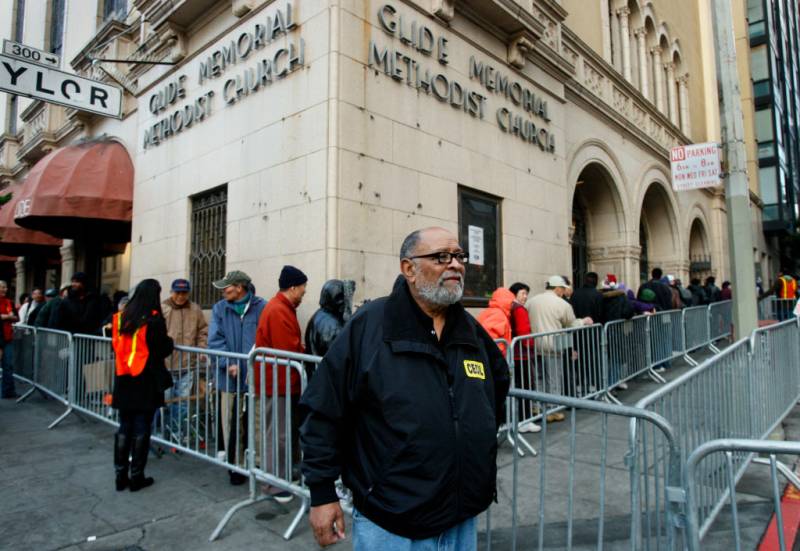The grandson of a slave, Albert Cecil Williams was born Sept. 22, 1929, and raised in the segregated West Texas town of San Angelo. He was one of six children.
After moving to San Francisco, Williams helped revive Glide with Janice Mirikitani, who later became his wife. Mirikitani died in 2021.
With the addition of a chorus and a band, Williams’ church soon began hosting spirited, celebratory Sunday services that attracted a diverse swath of parishioners.
Although he retired as the church’s pastor in 2000, he retained his roles as the Minister of Liberation and CEO of the GLIDE Foundation — organization that now has a more than $20 million budget and thousands of members — until last year, when he officially stepped down.
Randy Shaw, the director of the Tenderloin Housing Clinic, who wrote a book on the history of the neighborhood, said Williams’ leadership of the church was transformative. Many people, he said, don’t realize that when Williams was hired to lead Glide, the congregation was almost down to the single digits.
“He chose a remarkably unsurprising strategy to rebuild the congregation. He decided to be a fierce advocate for social justice and civil rights. And most controversial for the time, he became an outspoken advocate for lesbian and gay and transgender rights” at a time when San Francisco Police were arresting gay and lesbian people for being in bars, Shaw said.
In turning Glide into a major deliverer of social services, Williams became a prolific fundraiser and powerful booster, garnering the support of celebrities and major influencers, the likes of Oprah Winfrey, Bill Clinton, Bono and Warren Buffet.
“Cecil was able to make financial connections to donors that no one else in the Tenderloin, and maybe even in San Francisco, could make,” he said. “He was the fiery minister who was urging people to get involved in stuff and fighting for justice and not mincing words about things.”
In a statement, Mayor London Breed called Williams “the conscience of our San Francisco community.”
“He spoke out against injustice and he spoke for the marginalized,” she said. “He led with compassion and wisdom, always putting the people first and never relenting in his pursuit of justice and equality. His kindness brought people together and his vision changed our City and the world.”
Breed also noted how Williams championed the idea of supportive housing and “wraparound” services for those in need.
“As a young girl, I would never have dreamed I’d grow up to work with him,” she said. “We all benefited from his guidance, his support, and his moral compass. We would not be who we are as a city and a people without the legendary Cecil Williams.”
This article includes reporting from KQED’s Matthew Green, Alex Gonzalez, and Bay City News.

